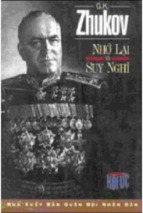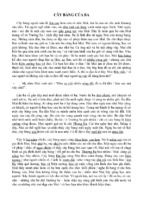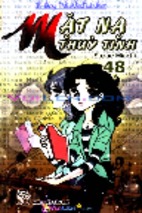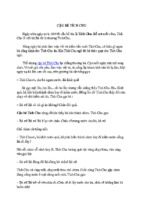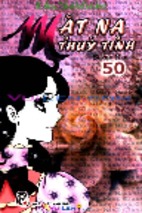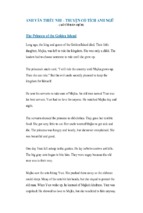e
ELECBOOK CLASSICS
The War of the
Worlds
H. G. Wells
1
2
The War of the Worlds
ELECBOOK CLASSICS
ebc0139, warw11.pdf. H. G. Wells: The War of the Worlds
This Project Gutenberg public domain text has been produced in
Portable Document Format (PDF) by the Electric Book Company. ➤
You will need the Acrobat + Search version of the Acrobat Reader to
make use of the full search facilities. Click here for details of how to
get your free copy of Acrobat Reader and how to get
the best from your PDF book. ➤
The Electric Book Company 1999
H. G. Wells
Elecbook Classics
This page intentionally blank
3
The War of the Worlds
Using Acrobat
T
o view the books you will need Adobe Acrobat Reader, version 3.0 or
higher, installed on your computer. To use the full search functions you
will need the larger Acrobat+Search version, not the simple Acrobat
Reader. If you don't have Acrobat +Search you can download if free from Adobe at:
http://www.adobe.com/prodindex/acrobat/readstep.html.
Follow the instructions to make sure you get the correct version.
Acrobat has a range of ways of viewing and searching the books. Take a little
time to experiment and see what suits you best. More detailed assistance if you need
it can be obtained by choosing Acrobat Online Help from the menu bar.
The main controls for Acrobat are the set of menus and icons which you will see
ranged along the top and bottom of the page. Running the mouse cursor across them
will bring up balloon help indicating the function of each.
Viewing: Once you have opened a book, the first thing to do is to choose the best
way of viewing it. When you first open a book, click on the Next Page button and
you will see that the page opens with a set of Bookmarks on the left. The page is set
to the width of its window and you can alter the magnification by clicking on the
dividing bar between page and bookmarks and dragging it to left or right.
You can alter the view by clicking on the Select Page View button at the bottom of
the page or clicking on View on the menu bar at the top of the screen and then
selecting your option. You can also use one of the three pre-set views on the button
bar. (Fit Window, Fit Page and 100% View)
For smaller screens (14- or 15-inch) and lower resolutions, (800 by 600 or below)
you will probably find it is best to view about half a page at a time. If you are in the
Fit Width view you can alter page magnification by dragging the page edge to left
or right. Alternatively you can set an exact figure using the Select Page View button.
Use the PgUp or PgDn keys or the sidebar to move up and down the pages. With
H. G. Wells
Elecbook Classics
4
The War of the Worlds
larger screens and higher resolutions, you can view an entire page at a time by
selecting Fit Page or, if you prefer, two pages (Go to the 1- or 2-page view button at
the bottom of the page).
You can also select and magnify areas of the page by up to 800% with the Magnify
View tool. This is particularly useful for viewing smaller pictures or diagrams.
Searching: To find a word or phrase in the texts click on the Search button.
(This is the icon of a pair of binoculars with a pad behind it—not to be confused
with the much slower Find button which is a simple pair of binoculars) This will
open a dialog box in which you can type the required words. Search highlights all
the words or phrases it finds which match your request. To highlight the next
occurrence of a match in the document, click the Search Next button. To highlight
the previous occurrence of a match in a document, click the Search Previous
button.
To refine your search click on the Search button again to bring up the dialog box
and type in your next search term. Hold down the Ctrl key and you will see the
‘Search’ button turn to ‘Refine’. Click on the Refine button and then the Search
Next and Search Previous buttons as before.
Wild cards are * and ?. The asterisk * matches none, one or more characters. For
example searching for prim* would find prime, primal, primate etc as well as prim.
The query ? matches single characters only; searching for t?me would find time and
tame but not theme.
Search Options. These expand or limit the results of searches with single terms and
phrases, with wild card symbols and with Boolean expressions. Click in the option
boxes if you want to use them.
Word stemming finds words that share a stem with the search word.
Thesaurus finds words that have meanings similar to the meaning of the search
word.
Sounds like finds different spellings of proper names.
Match case finds text only when it has the same case as the text you type.
H. G. Wells
Elecbook Classics
5
The War of the Worlds
Project Gutenberg Etexts
**The Project Gutenberg Etext of H. G. Wells’ War of the Worlds**
Copyright laws are changing all over the world, be sure to check
the copyright laws for your country before posting these files!!
Please take a look at the important information in this header.
We encourage you to keep this file on your own disk, keeping an
electronic path open for the next readers. Do not remove this.
**Welcome To The World of Free Plain Vanilla Electronic Texts**
**Etexts Readable By Both Humans and By Computers, Since 1971**
*These Etexts Prepared By Hundreds of Volunteers and Donations*
Information on contacting Project Gutenberg to get Etexts, and
further information is included below. We need your donations.
The War of the Worlds
by H. G. Wells [Herbert George]
July, 1992 [Etext #36]
**The Project Gutenberg Etext of H. G. Wells’ War of the Worlds**
*******This file should be named warw11.txt or warw11.zip********
Corrected EDITIONS of our etexts get a new NUMBER, xxxxx12.txt.
VERSIONS based on separate sources get new LETTER, xxxxx10a.txt.
Project Gutenberg Etexts are usually created from multiple editions,
all of which are in the Public Domain in the United States, unless a
copyright notice is included. Therefore, we do NOT keep these books
in compliance with any particular paper edition, usually otherwise.
We are now trying to release all our books one month in advance
of the official release dates, for time for better editing.
Please note: neither this list nor its contents are final till
midnight of the last day of the month of any such announcement.
The official release date of all Project Gutenberg Etexts is at
Midnight, Central Time, of the last day of the stated month. A
preliminary version may often be posted for suggestion, comment
and editing by those who wish to do so. To be sure you have an
up to date first edition [xxxxx10x.xxx] please check file sizes
in the first week of the next month. Since our ftp program has
a bug in it that scrambles the date [tried to fix and failed] a
look at the file size will have to do, but we will try to see a
new copy has at least one byte more or less.
H. G. Wells
Elecbook Classics
6
The War of the Worlds
Information about Project Gutenberg
We produce about two million dollars for each hour we work. The
fifty hours is one conservative estimate for how long it we take
to get any etext selected, entered, proofread, edited, copyright
searched and analyzed, the copyright letters written, etc. This
projected audience is one hundred million readers. If our value
per text is nominally estimated at one dollar then we produce $2
million dollars per hour this year as we release thirty-two text
files per month, or 384 more Etexts in 1998 for a total of 1500+
If these reach just 10% of the computerized population, then the
total should reach over 150 billion Etexts given away.
The Goal of Project Gutenberg is to Give Away One Trillion Etext
Files by the December 31, 2001. [10,000 x 100,000,000=Trillion]
This is ten thousand titles each to one hundred million readers,
which is only 10% of the present number of computer users. 2001
should have at least twice as many computer users as that, so it
will require us reaching less than 5% of the users in 2001.
We need your donations more than ever!
All donations should be made to "Project Gutenberg/CMU": and are
tax deductible to the extent allowable by law. (CMU = CarnegieMellon University).
For these and other matters, please mail to:
Project Gutenberg
P. O. Box 2782
Champaign, IL 61825
When all other email fails try our Executive Director:
Michael S. Hart
We would prefer to send you this information by email
(Internet, Bitnet, Compuserve, ATTMAIL or MCImail).
If you have an FTP program (or emulator), please
FTP directly to the Project Gutenberg archives:
[Mac users, do NOT point and click. . .type]
ftp uiarchive.cso.uiuc.edu
login: anonymous
password: your@login
cd etext/etext90 through /etext96
or cd etext/articles [get suggest gut for more information]
dir [to see files]
get or mget [to get files. . .set bin for zip files]
GET INDEX?00.GUT
for a list of books and
GET NEW GUT for general information and
MGET GUT* for newsletters.
Information prepared by the Project Gutenberg legal advisor
H. G. Wells
Elecbook Classics
7
The War of the Worlds
***START**THE SMALL PRINT!**FOR PUBLIC DOMAIN ETEXTS**START***
Why is this "Small Print!" statement here? You know: lawyers.
They tell us you might sue us if there is something wrong with
your copy of this etext, even if you got it for free from
someone other than us, and even if what's wrong is not our
fault. So, among other things, this "Small Print!" statement
disclaims most of our liability to you. It also tells you how
you can distribute copies of this etext if you want to.
*BEFORE!* YOU USE OR READ THIS ETEXT
By using or reading any part of this PROJECT GUTENBERG-tm
etext, you indicate that you understand, agree to and accept
this "Small Print!" statement. If you do not, you can receive
a refund of the money (if any) you paid for this etext by
sending a request within 30 days of receiving it to the person
you got it from. If you received this etext on a physical
medium (such as a disk), you must return it with your request.
ABOUT PROJECT GUTENBERG-TM ETEXTS
This PROJECT GUTENBERG-tm etext, like most PROJECT GUTENBERGtm etexts, is a "public domain" work distributed by Professor
Michael S. Hart through the Project Gutenberg Association at
Carnegie-Mellon University (the "Project"). Among other
things, this means that no one owns a United States copyright
on or for this work, so the Project (and you!) can copy and
distribute it in the United States without permission and
without paying copyright royalties. Special rules, set forth
below, apply if you wish to copy and distribute this etext
under the Project's "PROJECT GUTENBERG" trademark.
To create these etexts, the Project expends considerable
efforts to identify, transcribe and proofread public domain
works. Despite these efforts, the Project's etexts and any
medium they may be on may contain "Defects". Among other
things, Defects may take the form of incomplete, inaccurate or
corrupt data, transcription errors, a copyright or other
intellectual property infringement, a defective or damaged
disk or other etext medium, a computer virus, or computer
codes that damage or cannot be read by your equipment.
LIMITED WARRANTY; DISCLAIMER OF DAMAGES
But for the "Right of Replacement or Refund" described below,
[1] the Project (and any other party you may receive this
etext from as a PROJECT GUTENBERG-tm etext) disclaims all
liability to you for damages, costs and expenses, including
legal fees, and [2] YOU HAVE NO REMEDIES FOR NEGLIGENCE OR
UNDER STRICT LIABILITY, OR FOR BREACH OF WARRANTY OR CONTRACT,
H. G. Wells
Elecbook Classics
8
The War of the Worlds
INCLUDING BUT NOT LIMITED TO INDIRECT, CONSEQUENTIAL, PUNITIVE
OR INCIDENTAL DAMAGES, EVEN IF YOU GIVE NOTICE OF THE
POSSIBILITY OF SUCH DAMAGES.
If you discover a Defect in this etext within 90 days of
receiving it, you can receive a refund of the money (if any)
you paid for it by sending an explanatory note within that
time to the person you received it from. If you received it
on a physical medium, you must return it with your note, and
such person may choose to alternatively give you a replacement
copy. If you received it electronically, such person may
choose to alternatively give you a second opportunity to
receive it electronically.
THIS ETEXT IS OTHERWISE PROVIDED TO YOU "AS-IS". NO OTHER
WARRANTIES OF ANY KIND, EXPRESS OR IMPLIED, ARE MADE TO YOU AS
TO THE ETEXT OR ANY MEDIUM IT MAY BE ON, INCLUDING BUT NOT
LIMITED TO WARRANTIES OF MERCHANTABILITY OR FITNESS FOR A
PARTICULAR PURPOSE.
Some states do not allow disclaimers of implied warranties or
the exclusion or limitation of consequential damages, so the
above disclaimers and exclusions may not apply to you, and you
may have other legal rights.
INDEMNITY
You will indemnify and hold the Project, its directors,
officers, members and agents harmless from all liability, cost
and expense, including legal fees, that arise directly or
indirectly from any of the following that you do or cause:
[1] distribution of this etext, [2] alteration, modification,
or addition to the etext, or [3] any Defect.
DISTRIBUTION UNDER "PROJECT GUTENBERG-tm"
You may distribute copies of this etext electronically, or by
disk, book or any other medium if you either delete this
"Small Print!" and all other references to Project Gutenberg,
or:
[1] Only give exact copies of it. Among other things, this
requires that you do not remove, alter or modify the
etext or this "small print!" statement. You may however,
if you wish, distribute this etext in machine readable
binary, compressed, mark-up, or proprietary form,
including any form resulting from conversion by word processing or hypertext software, but only so long as
*EITHER*:
[*] The etext, when displayed, is clearly readable, and
H. G. Wells
Elecbook Classics
9
The War of the Worlds
[2]
[3]
does *not* contain characters other than those
intended by the author of the work, although tilde
(~), asterisk (*) and underline (_) characters may
be used to convey punctuation intended by the
author, and additional characters may be used to
indicate hypertext links; OR
[*] The etext may be readily converted by the reader at
no expense into plain ASCII, EBCDIC or equivalent
form by the program that displays the etext (as is
the case, for instance, with most word processors);
OR
[*] You provide, or agree to also provide on request at
no additional cost, fee or expense, a copy of the
etext in its original plain ASCII form (or in EBCDIC
or other equivalent proprietary form).
Honor the etext refund and replacement provisions of this
"Small Print!" statement.
Pay a trademark license fee to the Project of 20% of the
net profits you derive calculated using the method you
already use to calculate your applicable taxes. If you
don't derive profits, no royalty is due. Royalties are
payable to "Project Gutenberg Association/Carnegie-Mellon
University" within the 60 days following each
date you prepare (or were legally required to prepare)
your annual (or equivalent periodic) tax return.
WHAT IF YOU *WANT* TO SEND MONEY EVEN IF YOU DON'T HAVE TO?
The Project gratefully accepts contributions in money, time,
scanning machines, OCR software, public domain etexts, royalty
free copyright licenses, and every other sort of contribution
you can think of. Money should be paid to "Project Gutenberg
Association / Carnegie-Mellon University".
*END*THE SMALL PRINT! FOR PUBLIC DOMAIN ETEXTS*Ver.04.29.93*END*
H. G. Wells
Elecbook Classics
10
The War of the Worlds
The War of the
Worlds
H. G. Wells
H. G. Wells
Elecbook Classics
The War of the Worlds
11
Contents
Click on number to go to page
Project Gutenberg Etexts.................................................................................5
BOOK ONE: The Coming of the Martians..................................................14
CHAPTER ONE: The Eve Of The War.......................................................15
CHAPTER TWO: The Falling Star .............................................................22
CHAPTER THREE: On Horsell Common ..................................................26
CHAPTER FOUR: The Cylinder Opens .....................................................30
CHAPTER FIVE: The Heat-Ray .................................................................34
CHAPTER SIX: The Heat-Ray in the Chobham Road................................39
CHAPTER SEVEN: How I Reached Home ................................................42
CHAPTER EIGHT: Friday Night ................................................................47
CHAPTER NINE: The Fighting Begins ......................................................50
CHAPTER TEN: In the Storm.....................................................................57
CHAPTER ELEVEN: At the Window ........................................................64
CHAPTER TWELVE: What I Saw of the Destruction of
Weybridge and Shepperton ...........................................................................70
CHAPTER THIRTEEN: How I Fell in with the Curate ..............................82
CHAPTER FOURTEEN: In London...........................................................88
CHAPTER FIFTEEN: What had Happened in Surrey ..............................100
CHAPTER SIXTEEN: The Exodus From London....................................109
CHAPTER SEVENTEEN: The “Thunder Child” .....................................122
H. G. Wells
Elecbook Classics
The War of the Worlds
12
BOOK TWO: The Earth under the Martians .............................................132
CHAPTER ONE: Under Foot ....................................................................133
CHAPTER TWO: What we Saw from the Ruined House.........................141
CHAPTER THREE: The Days of Imprisonment ......................................151
CHAPTER FOUR: The Death of the Curate .............................................157
CHAPTER FIVE: The Stillness.................................................................162
CHAPTER SIX: The Work of Fifteen Days..............................................165
CHAPTER SEVEN: The Man On Putney Hill..........................................169
CHAPTER EIGHT: Dead London.............................................................185
CHAPTER NINE: Wreckage.....................................................................194
CHAPTER TEN: The Epilogue .................................................................200
H. G. Wells
Elecbook Classics
The War of the Worlds
13
But who shall dwell in these worlds if they be
inhabited? . . . Are we or they Lords of the
World? . . . And how are all things made for man?—
KEPLER (quoted in The Anatomy of Melancholy)
H. G. Wells
Elecbook Classics
The War of the Worlds
14
BOOK ONE:
The Coming of the Martians
H. G. Wells
Elecbook Classics
The War of the Worlds
15
CHAPTER ONE:
The Eve Of The War
N
o one would have believed in the last years of the nineteenth
century that this world was being watched keenly and closely by
intelligences greater than man’s and yet as mortal as his own; that
as men busied themselves about their various concerns they were scrutinised
and studied, perhaps almost as narrowly as a man with a microscope might
scrutinise the transient creatures that swarm and multiply in a drop of water.
With infinite complacency men went to and fro over this globe about their
little affairs, serene in their assurance of their empire over matter. It is
possible that the infusoria under the microscope do the same. No one gave a
thought to the older worlds of space as sources of human danger, or thought
of them only to dismiss the idea of life upon them as impossible or
improbable. It is curious to recall some of the mental habits of those
departed days. At most terrestrial men fancied there might be other men
upon Mars, perhaps inferior to themselves and ready to welcome a
missionary enterprise. Yet across the gulf of space, minds that are to our
minds as ours are to those of the beasts that perish, intellects vast and cool
and unsympathetic, regarded this earth with envious eyes, and slowly and
surely drew their plans against us. And early in the twentieth century came
the great disillusionment.
The planet Mars, I scarcely need remind the reader, revolves about the
sun at a mean distance of 140,000,000 miles, and the light and heat it
receives from the sun is barely half of that received by this world. It must be,
if the nebular hypothesis has any truth, older than our world; and long before
this earth ceased to be molten, life upon its surface must have begun its
H. G. Wells
Elecbook Classics
The War of the Worlds
16
course. The fact that it is scarcely one seventh of the volume of the earth
must have accelerated its cooling to the temperature at which life could
begin. It has air and water and all that is necessary for the support of
animated existence.
Yet so vain is man, and so blinded by his vanity, that no writer, up to the
very end of the nineteenth century, expressed any idea that intelligent life
might have developed there far, or indeed at all, beyond its earthly level. Nor
was it generally understood that since Mars is older than our earth, with
scarcely a quarter of the superficial area and remoter from the sun, it
necessarily follows that it is not only more distant from time’s beginning but
nearer its end.
The secular cooling that must someday overtake our planet has already
gone far indeed with our neighbour. Its physical condition is still largely a
mystery, but we know now that even in its equatorial region the midday
temperature barely approaches that of our coldest winter. Its air is much
more attenuated than ours, its oceans have shrunk until they cover but a third
of its surface, and as its slow seasons change huge snowcaps gather and melt
about either pole and periodically inundate its temperate zones. That last
stage of exhaustion, which to us is still incredibly remote, has become a
presentday problem for the inhabitants of Mars. The immediate pressure of
necessity has brightened their intellects, enlarged their powers, and hardened
their hearts. And looking across space with instruments, and intelligences
such as we have scarcely dreamed of, they see, at its nearest distance only
35,000,000 of miles sunward of them, a morning star of hope, our own
warmer planet, green with vegetation and grey with water, with a cloudy
atmosphere eloquent of fertility, with glimpses through its drifting cloud
wisps of broad stretches of populous country and narrow, navy-crowded
seas.
And we men, the creatures who inhabit this earth, must be to them at least
H. G. Wells
Elecbook Classics
The War of the Worlds
17
as alien and lowly as are the monkeys and lemurs to us. The intellectual side
of man already admits that life is an incessant struggle for existence, and it
would seem that this too is the belief of the minds upon Mars. Their world is
far gone in its cooling and this world is still crowded with life, but crowded
only with what they regard as inferior animals. To carry warfare sunward is,
indeed, their only escape from the destruction that, generation after
generation, creeps upon them.
And before we judge of them too harshly we must remember what
ruthless and utter destruction our own species has wrought, not only upon
animals, such as the vanished bison and the dodo, but upon its inferior races.
The Tasmanians, in spite of their human likeness, were entirely swept out of
existence in a war of extermination waged by European immigrants, in the
space of fifty years. Are we such apostles of mercy as to complain if the
Martians warred in the same spirit?
The Martians seem to have calculated their descent with amazing
subtlety—their mathematical learning is evidently far in excess of ours—and
to have carried out their preparations with a well-nigh perfect unanimity.
Had our instruments permitted it, we might have seen the gathering trouble
far back in the nineteenth century. Men like Schiaparelli watched the red
planet—it is odd, by-the-bye, that for countless centuries Mars has been the
star of war—but failed to interpret the fluctuating appearances of the
markings they mapped so well. All that time the Martians must have been
getting ready.
During the opposition of 1894 a great light was seen on the illuminated
part of the disk, first at the Lick Observatory, then by Perrotin of Nice, and
then by other observers. English readers heard of it first in the issue of
Nature dated August 2. I am inclined to think that this blaze may have been
the casting of the huge gun, in the vast pit sunk into their planet, from which
their shots were fired at us. Peculiar markings, as yet unexplained, were seen
H. G. Wells
Elecbook Classics
The War of the Worlds
18
near the site of that outbreak during the next two oppositions.
The storm burst upon us six years ago now. As Mars approached
opposition, Lavelle of Java set the wires of the astronomical exchange
palpitating with the amazing intelligence of a huge outbreak of incandescent
gas upon the planet. It had occurred towards midnight of the twelfth; and the
spectroscope, to which he had at once resorted, indicated a mass of flaming
gas, chiefly hydrogen, moving with an enormous velocity towards this earth.
This jet of fire had become invisible about a quarter past twelve. He
compared it to a colossal puff of flame suddenly and violently squirted out of
the planet, “as flaming gases rushed out of a gun.”
A singularly appropriate phrase it proved. Yet the next day there was
nothing of this in the papers except a little note in the Daily Telegraph, and
the world went in ignorance of one of the gravest dangers that ever
threatened the human race. I might not have heard of the eruption at all had I
not met Ogilvy, the well-known astronomer, at Ottershaw. He was
immensely excited at the news, and in the excess of his feelings invited me
up to take a turn with him that night in a scrutiny of the red planet.
In spite of all that has happened since, I still remember that vigil very
distinctly: the black and silent observatory, the shadowed lantern throwing a
feeble glow upon the floor in the corner, the steady ticking of the clockwork
of the telescope, the little slit in the roof—an oblong profundity with the
stardust streaked across it. Ogilvy moved about, invisible but audible.
Looking through the telescope, one saw a circle of deep blue and the little
round planet swimming in the field. It seemed such a little thing, so bright
and small and still, faintly marked with transverse stripes, and slightly
flattened from the perfect round. But so little it was, so silvery warm—a
pin’s-head of light! It was as if it quivered, but really this was the telescope
vibrating with the activity of the clockwork that kept the planet in view.
As I watched, the planet seemed to grow larger and smaller and to
H. G. Wells
Elecbook Classics
The War of the Worlds
19
advance and recede, but that was simply that my eye was tired. Forty
millions of miles it was from us—more than forty millions of miles of void.
Few people realise the immensity of vacancy in which the dust of the
material universe swims.
Near it in the field, I remember, were three faint points of light, three
telescopic stars infinitely remote, and all around it was the unfathomable
darkness of empty space. You know how that blackness looks on a frosty
starlight night. In a telescope it seems far profounder. And invisible to me
because it was so remote and small, flying swiftly and steadily towards me
across that incredible distance, drawing nearer every minute by so many
thousands of miles, came the Thing they were sending us, the Thing that was
to bring so much struggle and calamity and death to the earth. I never
dreamed of it then as I watched; no one on earth dreamed of that unerring
missile.
That night, too, there was another jetting out of gas from the distant
planet. I saw it. A reddish flash at the edge, the slightest projection of the
outline just as the chronometer struck midnight; and at that I told Ogilvy and
he took my place. The night was warm and I was thirsty, and I went
stretching my legs clumsily and feeling my way in the darkness, to the little
table where the siphon stood, while Ogilvy exclaimed at the streamer of gas
that came out towards us.
That night another invisible missile started on its way to the earth from
Mars, just a second or so under twenty-four hours after the first one. I
remember how I sat on the table there in the blackness, with patches of green
and crimson swimming before my eyes. I wished I had a light to smoke by,
little suspecting the meaning of the minute gleam I had seen and all that it
would presently bring me. Ogilvy watched till one, and then gave it up; and
we lit the lantern and walked over to his house. Down below in the darkness
were Ottershaw and Chertsey and all their hundreds of people, sleeping in
H. G. Wells
Elecbook Classics
- Xem thêm -



